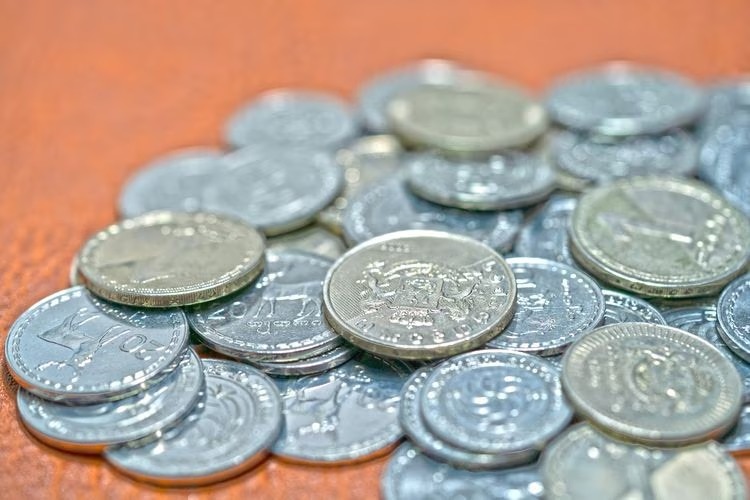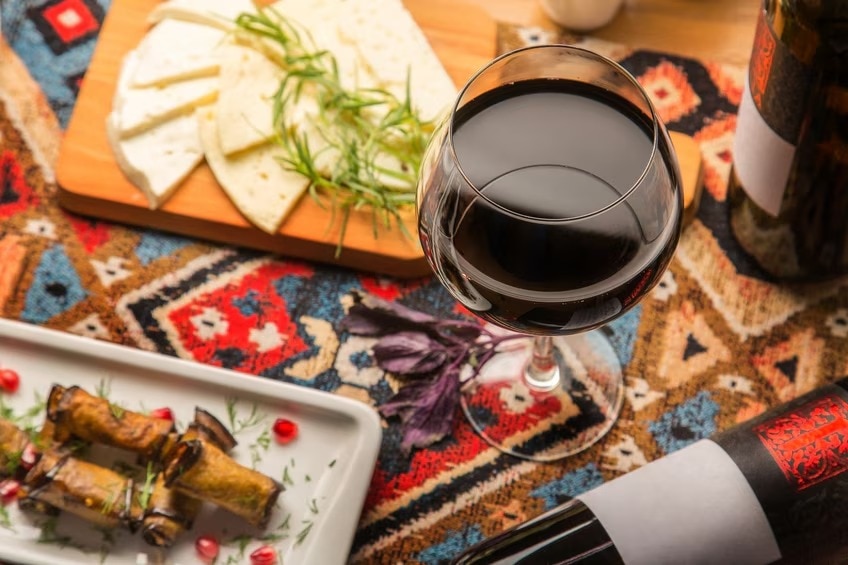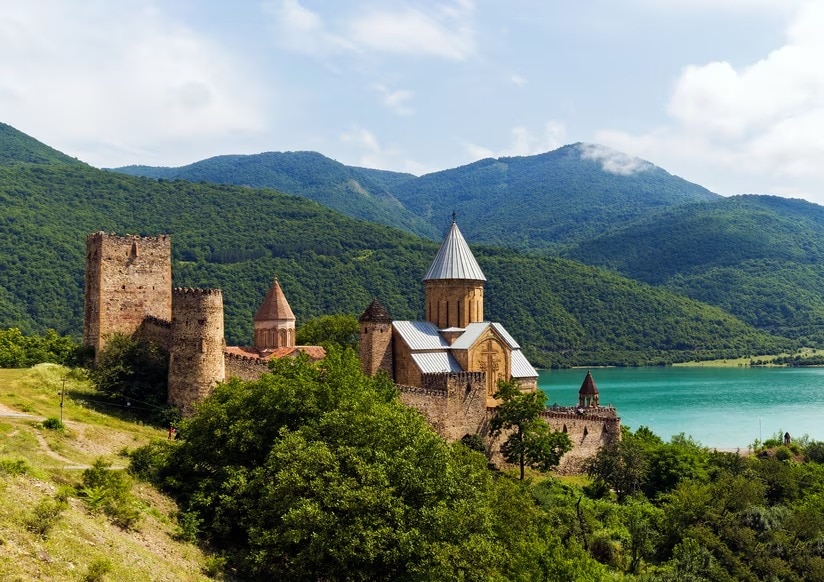Georgia Travel Tips and Information
Official Name
Republic of Georgia
Capital
Tbilisi
Population
Country Code
About 3.8 million
GE
Country Code (international calls)
+995
The flight time to Georgia is approximately ---- hours. Check the climate, currency, religion, manners, other information of Georgia below. Wishing you pleasant travels to Georgia.
Situated in Eastern Europe, Georgia lies along the Black Sea coast on its western side, sharing borders with Russia, Azerbaijan, Turkey, and Armenia.
Local Climate / Weather
Georgia offers a rich and diverse climate, making it an attractive destination for travelers year-round. In general, Georgia experiences four distinct seasons: winter, spring, summer, and autumn. Winters (December to February) are snowy and perfect for skiing enthusiasts, especially in areas like Gudauri. Spring (March to May) welcomes blooming landscapes and mild temperatures, ideal for exploring cities and countryside. Summers (June to August) are warm and pleasant, inviting travelers to enjoy Georgia's Black Sea beaches and outdoor festivals. Autumn (September to November) is marked by vibrant fall foliage, making it popular for vineyard tours and harvest festivals. For seasonal travel advice, winter travelers should be prepared for cold weather, particularly in mountainous regions. Spring and autumn are excellent for those who prefer milder temperatures and fewer crowds, while summer offers the warmest temperatures, ideal for beach and nature activities. Major events and festivals add to the charm of visiting Georgia. Tbilisoba, celebrated in October, is a city festival in Tbilisi showcasing Georgian culture, food, and music. The Rtveli grape harvest festival, held in September, provides a unique opportunity to experience Georgian wine traditions firsthand.
Currency & Tipping
Currency
When visiting Georgia, travelers will find the official currency to be the Georgian Lari (GEL). It’s advisable to exchange to US Dollars or Euros before departure, as these currencies are more widely accepted for exchange at Georgian banks or local currency exchange centers. Credit cards are commonly accepted in larger cities like Tbilisi and Batumi, but cash is still preferred in smaller towns and for daily expenses.
Tipping
Tipping practices in Georgia are relatively flexible but generally appreciated. In restaurants, leaving a 10% tip for good service is common, though some establishments may include a service charge in the bill. For other services, like hotel porters or taxi drivers, tipping a small amount as a gesture of appreciation is welcome but not obligatory. This guide helps ensure travelers feel prepared and informed when handling money and tipping in Georgia, creating a smoother travel experience.
Useful Travel Information

Voltage & Electrical Outlets
In Georgia, the standard voltage is 220V with a frequency of 50Hz, and the power plugs are Type C and F. Travelers should bring a universal adapter to ensure compatibility with their devices.

Internet Connectivity
Georgia offers a robust internet environment with options for prepaid SIM cards from major carriers such as MagtiCom, Beeline, and Silknet. These providers offer a range of affordable data packages, making it easy to stay connected throughout your trip. Free Wi-Fi is also widely available in hotels, cafes, and tourist hotspots across cities like Tbilisi and Batumi.
Water for Consumption (Drinking Water)
Tap water is generally safe to drink in most urban areas of Georgia, but many locals and travelers prefer bottled water, which is widely available. For added safety, travelers can opt for bottled or filtered water, especially when visiting rural areas.
Culture, Religion & Social Etiquette
Culture
Georgia boasts a vibrant culture shaped by centuries of unique traditions, blending European and Asian influences. Travelers will find the Georgian spirit warm and welcoming, rooted deeply in hospitality. Known for their love of music, dance, and polyphonic singing, Georgians often celebrate their cultural heritage through lively festivals and traditional arts. Traditional dances like the "Kartuli" tell the stories of Georgian history, while feasts known as "Supras" provide a rich, communal experience that reflects the importance of family and friendship. For visitors, joining a Supra will feel familiar, as it emphasis on togetherness.
Religion
Georgia is primarily an Orthodox Christian nation, with over 80% of its population following the Georgian Orthodox Church. The country’s religious heritage dates back to the 4th century when Christianity was first adopted. travelers will encounter beautiful, centuries-old monasteries and churches like the iconic Gergeti Trinity Church near Mount Kazbek. Respect for religious spaces is highly valued, and visitors are encouraged to dress modestly and act with reverence when visiting these sites. Although Christianity dominates, there is also a small population practicing Islam, mainly concentrated in regions like Adjara, reflecting the religious tolerance and diversity of Georgia.
Social Etiquette
Georgians are known for their warmth and hospitality, which will resonate well with travelers. Georgian manners emphasize respect and generosity toward guests. When invited to a Georgian home or a Supra, travelers should be prepared for the custom of toasting, led by a "Tamada" or toastmaster, who guides the celebration with meaningful toasts. It's polite to accept a drink when toasted, even if only symbolically, as this gesture honors the host. Additionally, greetings are warm and often involve a handshake or even a hug among friends. Respect for elders and family is stron, and being polite, respectful, and open-hearted will be appreciated by Georgians.
Food Culture
Georgian cuisine offers travelers a rich and flavorful culinary journey, characterized by a blend of unique spices, fresh ingredients, and traditional techniques influenced by the country's diverse history and geography. Food enthusiasts visiting Georgia will delight in tasting iconic dishes like khachapuri, a cheese-filled bread often baked with eggs and butter, and khinkali, juicy dumplings filled with spiced meat or vegetables, ideal for a satisfying meal on the go. Georgia’s street food scene is equally vibrant, with locals and tourists flocking to vendors for quick bites like lobiani, a delicious bean-stuffed bread, and churchkhela, a traditional snack made from nuts dipped in thickened grape juice, which is both sweet and energy-boosting. For an authentic dining experience, travelers can explore restaurants such as Tifliso, located in the heart of Tbilisi, known for its warm ambiance and diverse selection of Georgian dishes that allow visitors to sample traditional flavors in a modern setting. For a cozy, rustic experience, Cafe Littera is a popular choice among locals and travelers alike, offering creative twists on Georgian classics amid a charming courtyard. Another must-visit is Machakhela, a well-loved chain where diners can try a variety of local dishes, from hearty stews to grilled meats, ideal for tasting the depth of Georgian flavors. As Georgian wine is an integral part of the culture, travelers should also experience the country’s rich winemaking heritage by visiting wineries or sampling wine in local restaurants, adding a memorable touch to their culinary journey. With its inviting blend of hearty, flavorful dishes and accessible street food options, Georgia’s food culture promises travelers an exciting and flavorful adventure. Whether exploring street stalls or enjoying meals in renowned restaurants, Georgia offers a culinary landscape that is both diverse and memorable.
Major Tourist Attractions & UNESCO World Heritage Sites
Major Tourist Attractions
Tbilisi, the capital of the valley, is recommended for its beautiful views of the city from above the surrounding Narikala Fortress, Metehi Church, and Mt. Mutatsminda. Within Georgia, there are several tourist attractions, including the old capital and World Heritage Site of the ancient city of Mtskheta, and the Georgian Military Road, which was carved out by the Russian Empire. The Ananuri Church, located along the military road, is an old church with a sense of wistfulness surrounded by walls. Winery tours in various parts of the country are also popular, as the method of wine production is registered as a World Heritage site as an intangible cultural heritage.
UNESCO World Heritage Sites
There are three World Heritage Sites in Georgia. Two of them, “Cultural Monuments of Mtskheta” and “Upper Svaneti, Bagrati Cathedral and Gelati Monastery,” are designated as Critical Heritage Sites. In addition, the unique Georgian wine-making process is listed as a World Intangible Cultural Heritage.
Travel FAQs
Is English commonly spoken in Georgia?
Georgia, which gained independence from Russia, is not an English-speaking country. English speakers are not widely available, with most everyday conversations happening in Russian or Georgian.
How safe is Georgia, and what precautions should I take?
Exercise caution when going out at night. Additionally, to avoid overcharging, it’s advisable to check standard prices for shopping or taxi rides in advance.
When is the best season to visit Georgia?
The ideal time for tourism in Georgia is from May to September.
What are some of the major cities in Georgia?
Tbilisi, the capital, is the largest city with a long and rich history.




